"The more your trench looks like a grave, the better your chances of survival." The things that are annoying, surprising, cheering and lifesaving for frontline soldiers
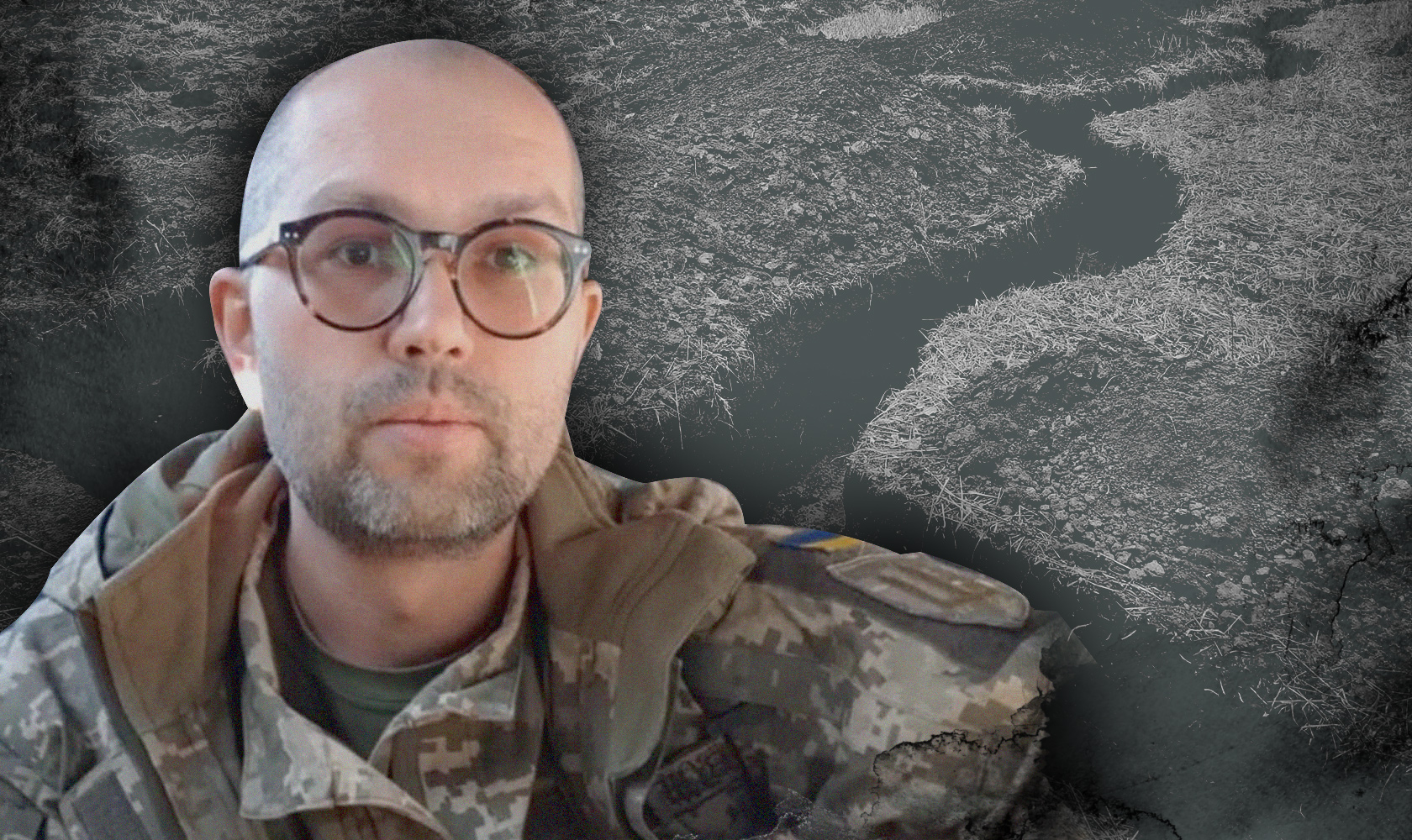
It all started with fire.
(Not fire from phosphorus bombs – fire of divine origin rather than hellfire.)
Then there was earth.
(At this point it was not shuddering from exploding mines.)
Soon after that, air appeared.
(Not "Air!", as in the "run-for-shelter" command.)
And the last element was water.
(It wasn't filling trenches back then.)
The ancient Greeks believed that the world was formed from these four elements. Fire, earth, air and water. Four elements that became the foundation of all things.
But this is not an article on natural philosophy. It’s about the everyday life of a soldier on the front line. About how these four elements have acquired a different power with the war, and how sometimes they help soldiers to survive, and sometimes do the opposite.
"We survive in places where there is no life. And this has taught us not to die in those places where there is so much death," says serviceman Anton Filatov.
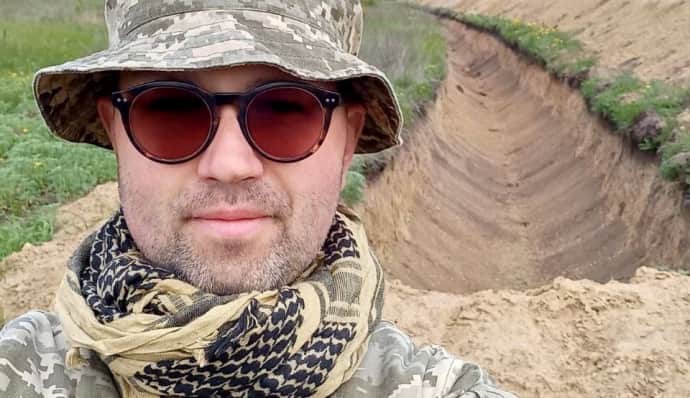
If we’d been talking to Anton Filatov two years ago, he might well have been guiding us through the world of cinema. He’s a member of FIPRESCI and the Ukrainian Film Academy – who could do it better?
But since then, Anton has swapped travelling to festivals in Cannes, Berlin and Venice for fighting near Lysychansk and getting to know the landscapes of Soledar, Bakhmut and Sloviansk. That’s why we’re now asking him to be our guide to the world of war – to tell us about the everyday life and faith of a soldier through the prism of his approach to the fundamentals of existence.
Some philosophers added a fifth element to the original four: aether. But cinema has taught us that the fifth element is the human. One who tries to survive in places where there is no life.
Anton Filatov, a former film critic who is now a soldier in the Ukrainian army, talked to us about the five elements that these days are intertwined with one more element – war.
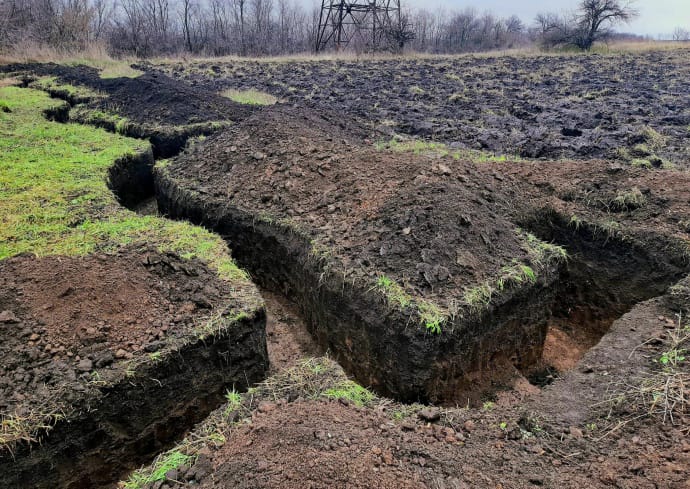
Earth
Protects – guides – determines your way of thinking
The earth at the front determines your level. Literally, not metaphorically. You are either on the ground or underground. You have a chance of surviving, or no chance.
The more your trench looks like a grave, the more chance you have of staying alive. Burrowed in a hole, and that's it.
The earth here is your home, again quite literally. These are walls, shelter, your armour, your protection.
When you walk in a trench wet, the earth sticks to you. There could be several kilos of mud on your boots and clothes. But you don't feel dirty.
This is really strange for me. At home I used to wash my hands 20 times a day; here I wash them 20 times a month. And, actually, this dirt is no longer perceived as dirt. It's just a part of you and your existence.
***
Frozen ground is the worst. Last winter, we had a division of diggers, about ten people. They drove to a position in the evening in armoured cars, with shovels and assault rifles. They drove for a long time and dug a dugout overnight. It took them about three hours to get to the place where they had to dig. Their task was to dig to a depth of two shovel bayonets.
Ten men digging a rectangle 4 by 3 metres, two bayonets deep. They were more like, you know, stonemasons. They weren't digging the ground; they kept on breaking it and breaking it, moving down little by little.
***
When I drove with the battalion to Donetsk Oblast on 21 June 2022, the first thing that struck me was the nature. I saw how dry the earth was and how prickly the plants were. Wherever you went, you’d keep getting caught on some spiky grass, flower or bush.
It was then that it occurred to me for the first time that the land determines the way of thinking of the people who live on it. The local people are rather prickly people, direct and sharp. I'm used to living in a community where you think ten times before you say anything. And here everything is very simple and easy. If you say something offensive, it’s not a problem.
***
Stressful situations often occur here. And the earth can also be a lightning rod for you. Any lightning, no matter how powerful, loses its power when it hits the ground. And when you live in the ground – in a trench, dugout, basement or cellar – you ground yourself.
In wartime, the earth absorbs all emotions and vivid experiences. They pass through you very quickly and go into the ground.
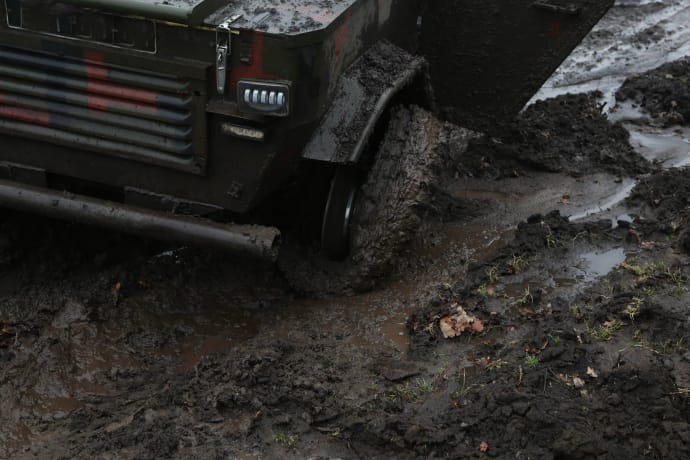
The earth is your guide here. Not the roads, but the land itself. Because your path goes through a forest plantation or a field, places where people don't usually walk. And the earth either gives you a way through or abruptly stops you. You just get bogged down in mud or swamp. Or it’s the other way round – a couple of stones will suddenly appear, and you can jump across on them and continue on your way.
I don’t know how it happens. This is a mystery.
Water
Slows down the war – makes things dirty and clean – makes it real
There has been too much coffee in my life since I got to the front. And the more coffee I drink, the more I realise that the most delicious drink in life is plain water.
In my first week at the front last summer, we dug trenches near the oil refinery in Lysychansk, picks in hand. Heat, stony ground. On the fourth or fifth day, we ran out of water. Finally they brought some – not in bottles, but from the nearest tap that was still working. Dirty, yellowish. It was very tasty water.
Another time, we were near Bakhmut in Stupochky, living at a factory. There was no well or water supply nearby. We drained non-potable water from the cooling system, showered and washed our clothes.
The guys who went to the "zero line" (as Ukrainians call the front) in winter said there were problems with water there as well. No vehicles drive up to the zero line. You have to get out a few kilometres away and then walk. You can't carry much water through the mud. They calculated that each person had 100 grams of water for half a day. That’s almost nothing, even though they were constantly digging.
Those who are in combat positions for a long time in winter melt snow and add some salt to that water to somehow enrich it with trace elements.
But a mobilised body can somehow withstand dirty hands, and dust everywhere, and dirty water, and bad air. It's surprising, but I don't get sick here much – a lot less often than I used to in civilian life. I don't remember what a cold is.
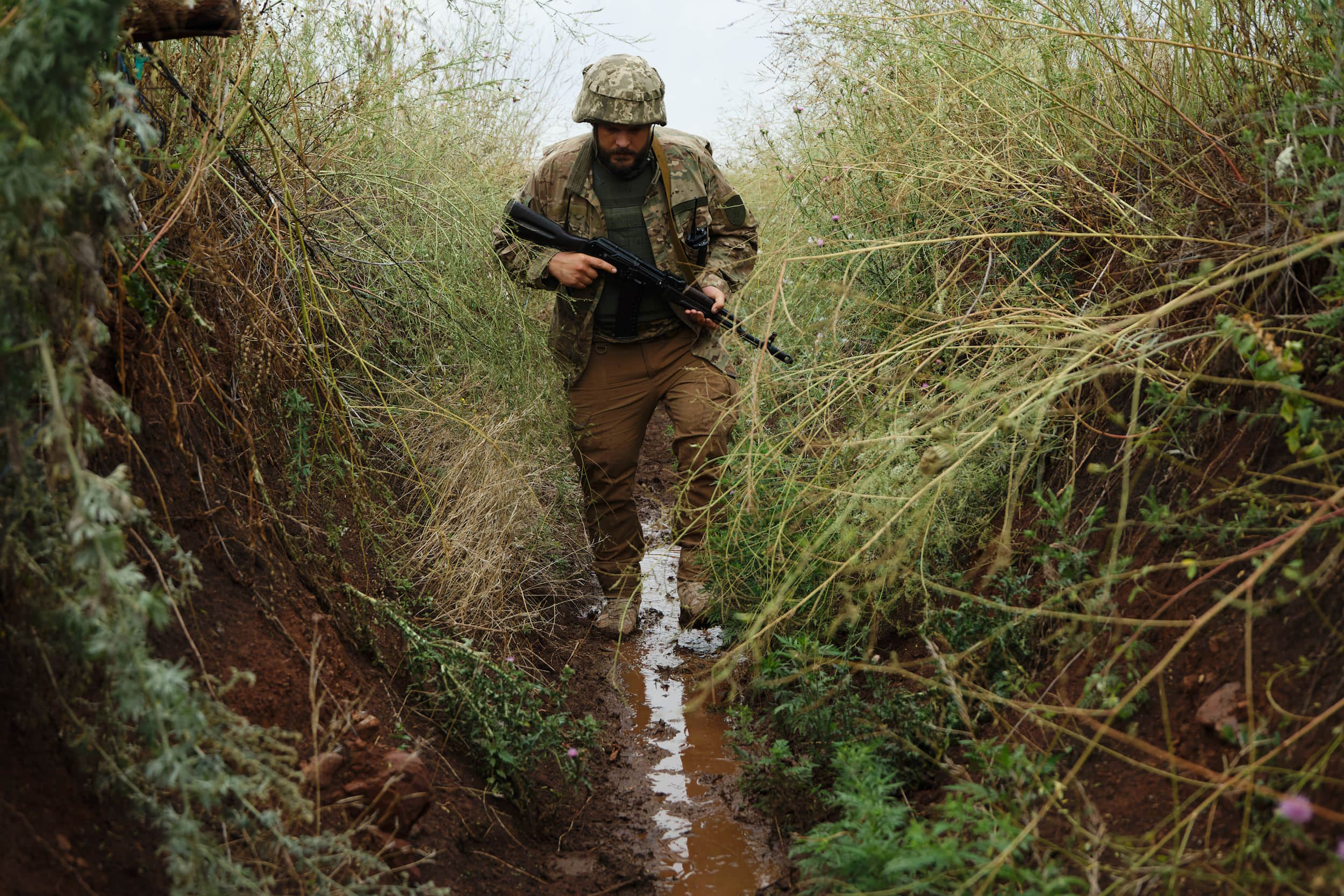
It hardly ever rains in the summer in Donbas. So when it does, it raises the spirits.
On the other hand, for a soldier, water from the sky always means wet feet. And when the cold rains begin, it means colds, kidney pain, and freezing cold joints.
From the second half of October onwards, water slows down the course of hostilities. Going on the offensive during the rains is so difficult that it loses all meaning. And no drones can fly, of course. The sky is closed.
Water cleanses the earth of war.
***
In March 2022, before I joined the military, we made fun of the brutish Russians who were looting washing machines. Once, a washing machine was found inside a helicopter that had been shot down.
Later, I realised that on the front, a washing machine could buy you the most precious thing: time. It spares you from spending an entire hour washing things in a bucket by hand.
Laundry issues are easy to solve, by the way: cargo vans can be converted into mobile laundries by retrofitting them with one or two water tanks, two cubic metres each, a power generator, two or three washing machines, a dryer, and a shelf to store detergents and other such things. A mobile laundry like this can meet an entire battalion’s laundry needs in a week. It’s a really great solution that makes everyone’s lives easier.
***
At the front, the shower is the only place where you can spend time on your own. It’s a very intimate space, a space where you shut off from the rest of the world and open up to yourself. It reminds me of those meditation rooms in Japanese offices, but on a more physiological level, because guys use the shower to shave, to wash themselves clean, to cry, to jerk off, to cut their hair. It’s a very rare opportunity. Now we have summer (outdoor) showers, and they’re great. Normally, though, we’d take a shower once a week or so.
You’re always in uniform, often you even sleep in it, and the shower is the only place where you can take it off. Even your sleep doesn’t belong to you, but the shower does. It’s the place where you can be yourself.
Air
Smells of freedom – makes you take cover – helps you shift gears
To me, the air at the front smells of freedom. Yes, you have orders, rules, regulations and uniforms pressing in on you from all sides, but inside you’re completely free. You can do things you could never imagine doing. Totally freestyle.
Here, you’re very honest with yourself and with others. Let me give you an example. A food parcel arrives. We open it and put it in the middle of the room. Anyone can help themselves to anything inside it. One soldier eggs another one on to try a hot pepper, and he tell him to f**k off. No offence at all – they’re just both being totally open and frank with each other.
In peacetime or under other circumstances, you’d try to explain why you don’t eat spicy food – or you’d just eat the pepper. So as not to offend anyone.
Here, it’s different. First, you’re always surrounded by lots of people – you can’t please everyone. Second, you might be killed any day. And what were you doing on the last day of your life? Trying to please someone or fit in? Come on!
***
When you hear "Air!", it usually means something’s coming at you from the sky – a missile or a drone.
Until recently the guys would fall to the ground and play dead whenever they heard "Air!" But it doesn’t work. You can’t lie on the ground in the same position for seven hours. Even if you did, you wouldn’t be able to get up for hernia between your vertebrae.
So when we hear drones in the air, we take cover – if the cover’s robust enough. But sometimes an enemy drone’s engines shut off on approach so we can’t hear it. It travels the last 100 metres to its target in absolute silence. You can see it, but you can’t hear it. It’s a terrifying tactic. Very effective and terrifying.
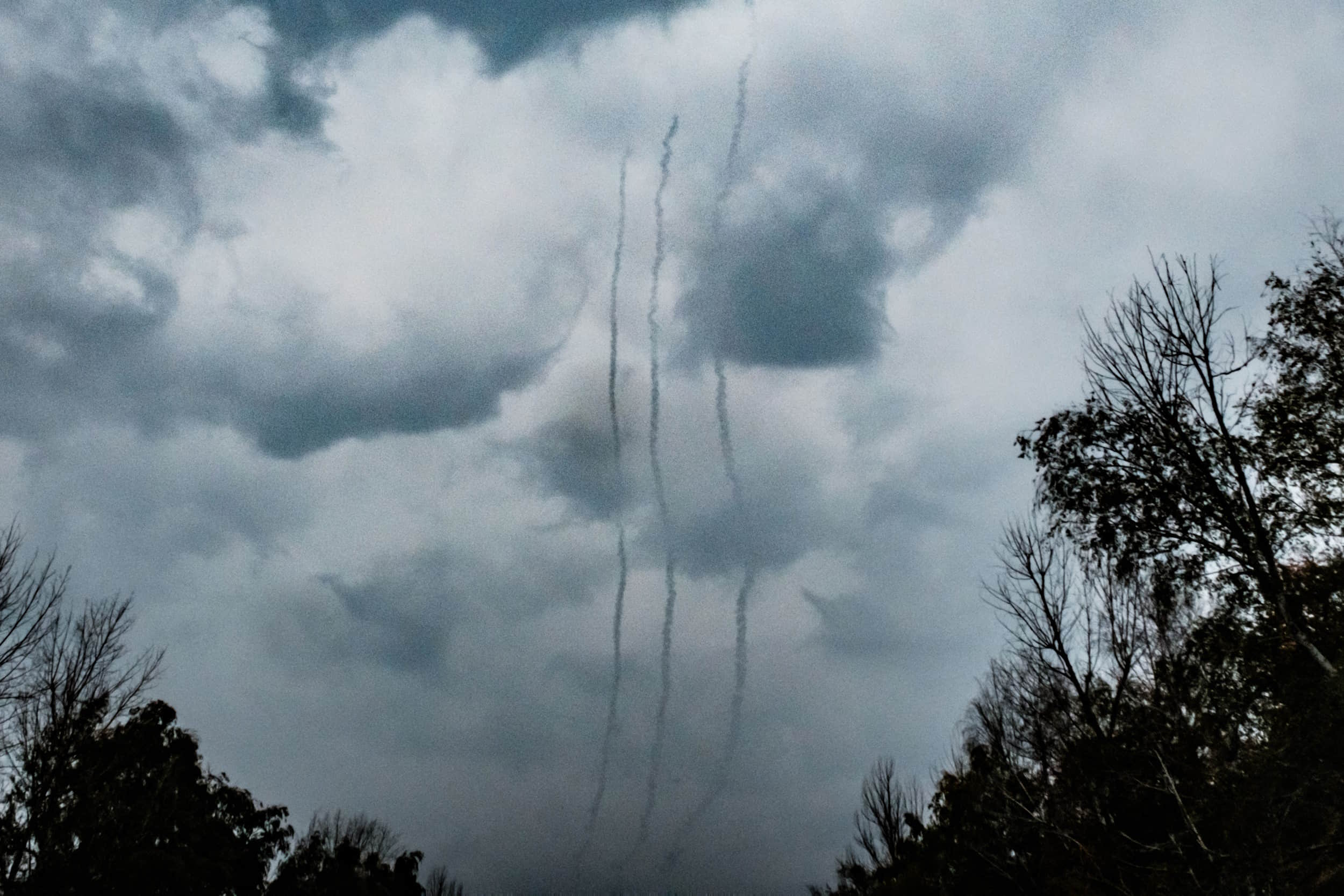
When you’re in a trench, all you can see are the walls, your weapons, the three or four things you brought with you, and a bit of food – that’s it. Sometimes your section of the front doesn’t get attacked for months on end. You just sit there and watch – nothing. The sky’s the only thing you see that changes: clouds sail past, the sun shifts. An endless abstraction; it helps you switch off.
I remember talking to a chaplain who had just visited a group of soldiers who’d gone through some very difficult battles. I asked him how he helps them cope with what they’d been through. He was from the Ukrainian Orthodox Church, but his response was in a Buddhist spirit. He said they should become attuned to what was going on around them; nature is a living organism with infinite energy, and you just have to learn to let it in.
I was struck by his response. It was in stark contrast to the daily grind of our lives: hungry, angry, sleep-deprived men with a ton of guns. Against this brutal reality, the chaplain’s response seemed subtle and thoughtful.
Fire
Warms you up and dries you off – comforts you – destroys
At the front, fire is a luxury. It warms you up and dries you off – and it feeds you. Being able to cook and eat some hot food at the front is a luxury. Being able to boil water is a luxury.
We used to make coffee in the trenches. We’d share a mug of some shitty McCoffee that tasted of yellow water and scorched iron. But it was good coffee. The only coffee we’d had in a long time.
***
Early on the guys all got camping stoves, the really small ones. But they only last long enough for about three mugs of water – and that’s it. You drag this thing around with you, the burner, and can’t get more than two meals out of it. So we’ve switched to five-litre gas cylinders, which we refill at petrol stations.
In winter, trying to heat up the place where you’re living is a real issue. Everything seizes up in the cold. Your whole being shrinks down to the bare essentials. In winter, everyone becomes very rational. There’s no milling about. Not enough energy, not enough sun, not enough warmth – not enough anything.
Cold makes everything that doesn’t matter fall away. You only have enough energy for the most crucial things. Fire then isn’t just something you use to cook and get warm, but something that helps you to survive psychologically.
But I’m talking about fire you can control, whereas most fire here is the kind you have absolutely no control over.
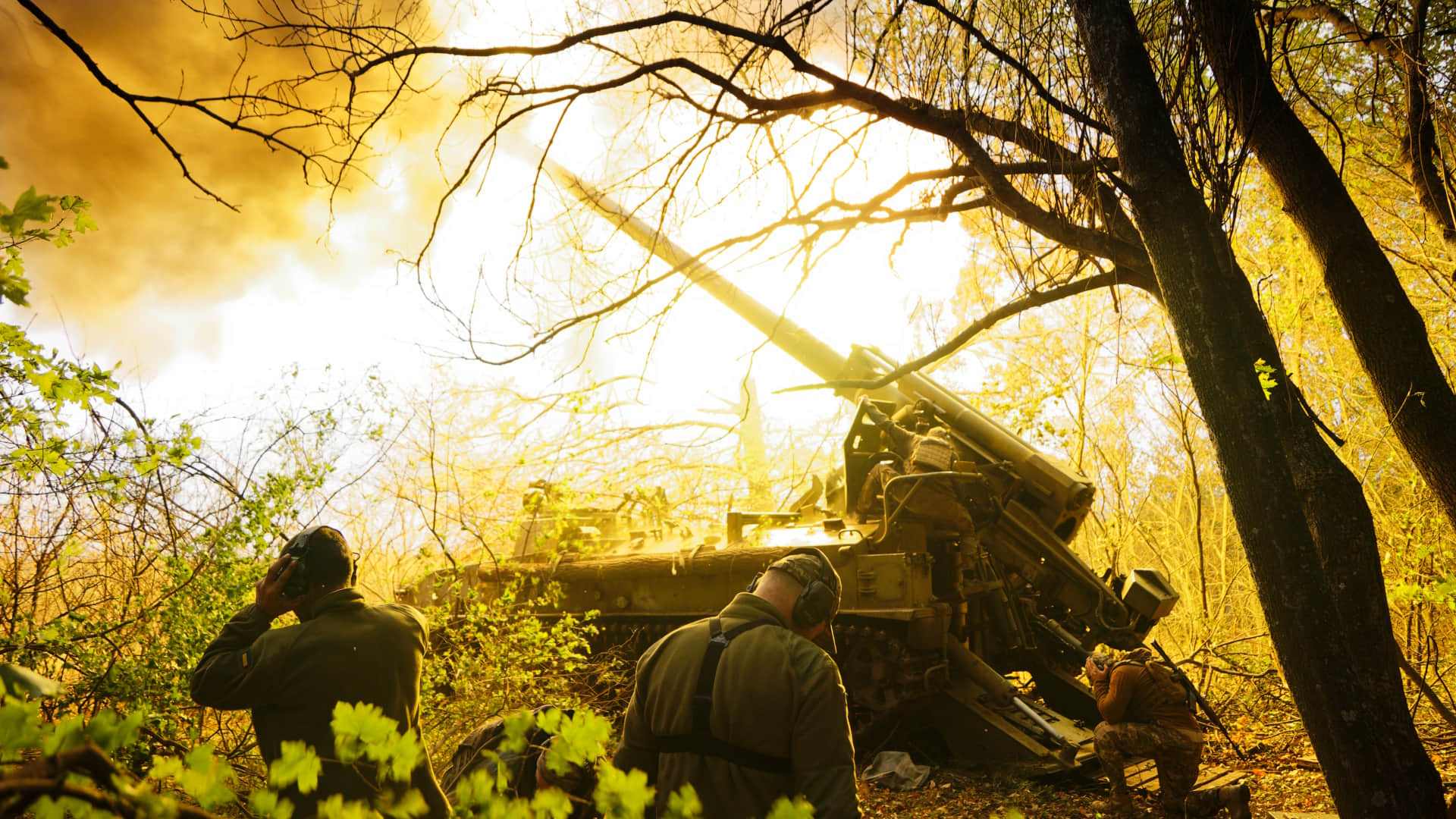
Once, while on guard late one evening, I watched as a stunning wash of red spilled over Lysychansk. I thought it was a magnificent sunset. But half an hour after the sun was supposed to have set, the sky was still ablaze with shades of red, and I realised I was looking east, not west, and that what I was seeing was not a picturesque sunset, but the hellish glow of phosphorus bombs.
Phosphorus bombs unleash clouds that rain bits of matter that burn through everything they settle on. They set everything on fire. People say hell smells of sulphur, but I’m not sure, I think it must be phosphorus. Plastic, wood, metal – everything dissolves in its foul stench.
Humans
Act instead of overthinking – annoy and irritate you – lose themselves in war
You don’t know how you’ll act here until you get here. It’s impossible to foresee.
People you don’t expect much from do truly great things. Sometimes they don’t expect that of themselves either. They’re calm, quiet people who go unnoticed among all those who beat their breasts, declaring that they’re prepared to march on Moscow barefoot and tear everyone there to shreds.
Those who act rather than overthink have more chance of surviving. When you ask someone how they made it through something, they’ll say: "I don’t remember. I was just doing something." Actions are reflexive, partly unconscious: you run, reload your gun, throw a grenade, run back, crouch, lie down, jump. It’s this animal energy.
People fighting in one part of the front might not be aware of the existence of people fighting elsewhere, but they all act as a single organism.
This makes you feel at one with the people around you. Even if you get annoyed by their snoring, their smell, or the way they talk.
But their actions – or yours – could really help someone. I don’t want to sound too melodramatic and say you might save someone’s life, but you could help someone make it through the day.
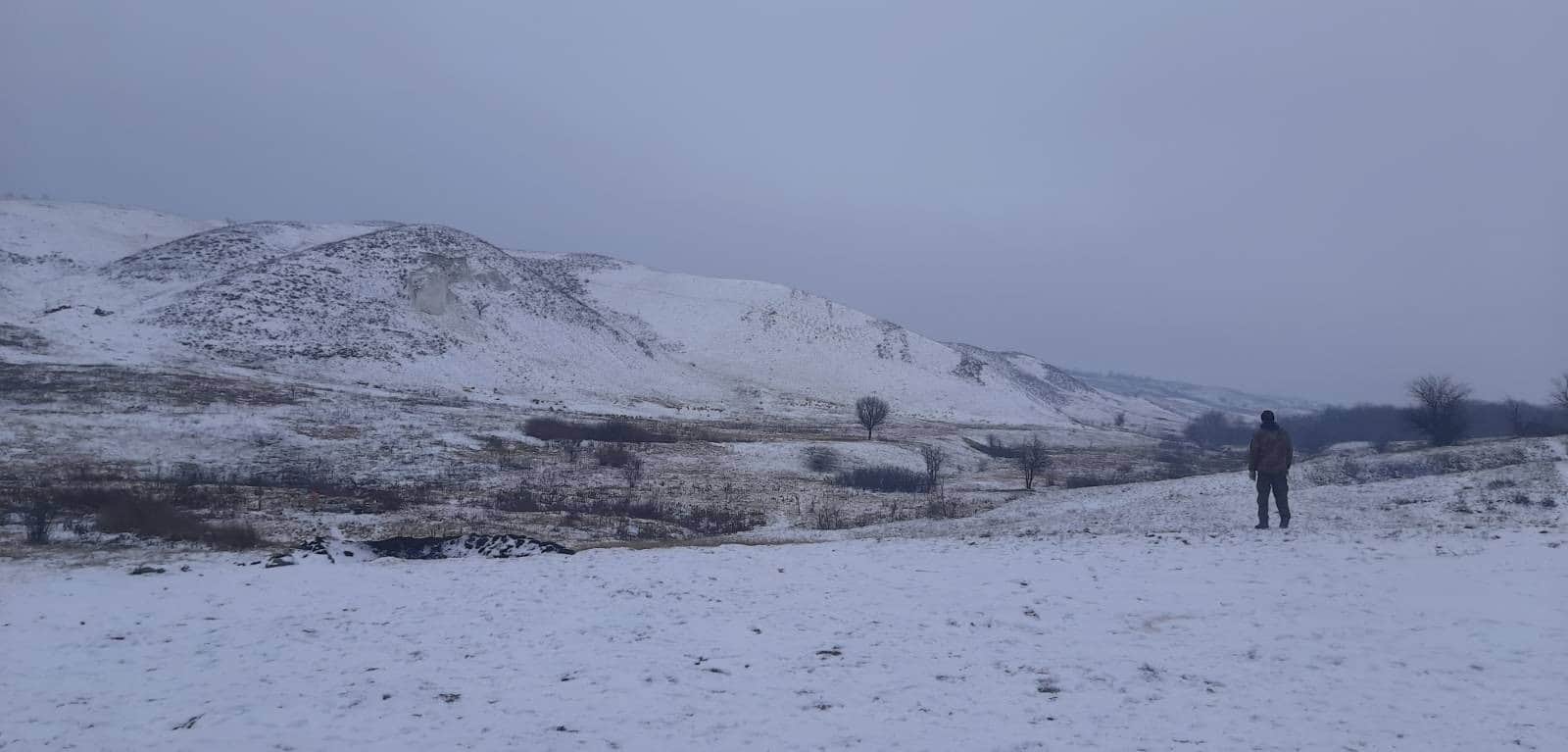
Being so close to death makes you feel only one thing: fear. All those notions – the taste of the last cigarette or the delicious food you eat before deploying to your position – are overly romantic. Food tastes like cardboard. I’d just make myself eat something, anything, so I wouldn’t faint, to raise my blood sugar – that’s it.
All thoughts are now somewhere far away, you’re just doing things on autopilot: you eat, get your stuff together, check your weapons, armour and helmet.
Being so close to death doesn’t add flavour to your life.
It’s a shitty feeling. Some people get overwhelmed by it, and that’s an issue for them and for people around them. For others it’s the other way round. I’ve met people whose mood seems to improve the closer they get to the front.
Last year when we were on our way to the front, our bus turned onto a street destroyed by shelling – the first one we’d encountered on our way. We could hear explosions getting closer and closer. A kind old wise man sitting across from me smiled mid-sentence. "I feel in a better mood now!" he said cheerfully, relishing the sound of the explosions and looking intently at the devastated buildings.
He wasn’t deranged – the war made him feel more alive and gave him energy. He wasn’t crazy, but he would plunge into battle as if it was a life-giving spring.
He was a smart, intelligent family man, with an attentive gaze; he saw right through you. You’d think someone like him would have nothing to do with war, but that was just an illusion.
A month later, he plunged so deep into the war’s "life-giving spring" that he never resurfaced. All that remains of him is the memory of his wise, open smile.
***
For people on the zero line, sometimes literally the closest people to them are the enemy.
One of my brothers-in-arms, Vasia, celebrated the New Year in a trench, with just 300-400 metres between his unit’s position and the Russians’. It was quiet for a bit. The first person he greeted in the new year was a Russian soldier: they waved at each other, then resumed their watch.
Another brother-in-arms of mine spent several weeks in a trench on the zero line. Thousands of shells had disfigured the surrounding area, leaving only three walls standing in the nearby village and uprooting the small forest areas that interspersed the fields. The earth was shaking. The impact of each projectile felt like an earthquake.
"Then the orcs [i.e. Russian soldiers – ed.] worked out where our positions were and started targeting our trenches," he recalled. "There was a f**king tank firing at us. A tank is f**king bad news. There were a few times when I just had no clue why I was suddenly on the ground: I’d been standing there on my two feet, and now I was on the ground.
Later in the evening, it got quieter. I stuck my head out to get some air. [...] I saw this other guy staring at the sky. We talked for a while – about artillery, sharpening shovels, women, football. We talked for a long time, most of the night. Then I told him I was going to bed, and he said he’d stay out a while longer. We said our goodbyes," he said.
In the morning it turned out that the guy he’d spent most of the night talking to was the body of a dead Russian who’d been lying there for over a week. That brother-in-arms of mine was later diagnosed with concussion.
***
Things on the front are always chaotic. Any semblance of order collapses as soon as it’s established. It’s impossible to predict whether a vehicle will get to where it’s supposed to be or not, or whether everyone in your team will do what they said they would.
Chaos is a given here. But it’s a controlled chaos. Commanders have to constantly manoeuvre and adapt, like surfers riding waves. That calls for wisdom. Obviously they can’t teach that in military academies. But it’s this wisdom that helps you find creative solutions.
To be successful here, you have to be able to deal with unexpected situations and feel comfortable navigating countless unknowns.
Rigidity here usually spells losses. Rigid plans – getting from A to B, no closer, no further, without deviating left or right – disintegrate before you’ve even had a chance to implement them.
***
Many people at the front find comfort in rituals and customs, daily routines or "enchanted" objects – bracelets, necklaces, crosses, runes – anything. It doesn’t matter exactly what it is: if it gives you strength, it works.
My daily ritual is a mantra that a friend of mine, a psychologist, shared with me. He told me before I headed to Donbas: "Anton, find quiet moments and say these three chants: peace to the world, end to the war, peace is in me. Say them over and over to find an inner equilibrium."
I want the four elements of the war – earth, water, air, and fire – to come together into a single new one: life or peace. All wars end in peace.
Here is one of the scenarios for what happens when all those elements come together.
A resident of Donbas comes back home. His village has been destroyed by bombs and shells. He takes his old things and the belongings of the people who lived in his house while he was away, piles them all up, and sets them on fire. Then he starts to dig a well, and he finds a smartphone. He wipes it clean, removes the metal waterproof case, pulls out the memory card, and goes through the photos and videos stored on it. They were captured by a soldier who fought for that land. The photos show the grim reality.
We can set fire to old, broken things and burn them. But we can never get rid of those memories.
Mykhailo Kryhel, Rustem Khalilov – Ukrainska Pravda
Translation: Yelyzaveta Khodatska and Olya Loza
Editing: Teresa Pearce